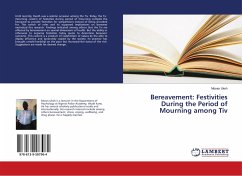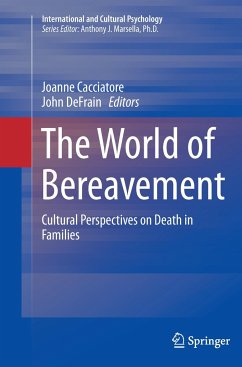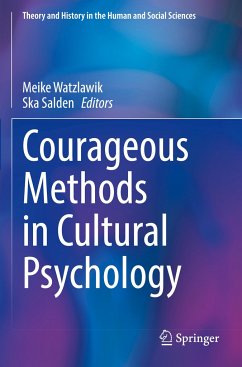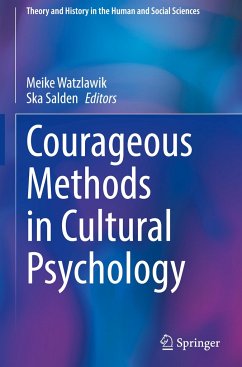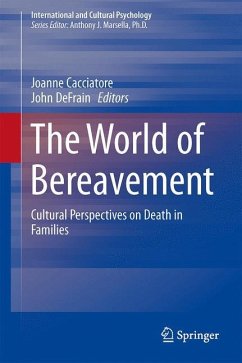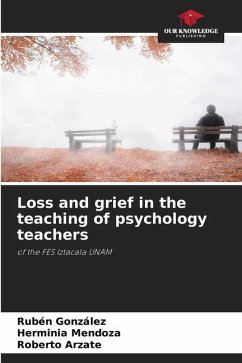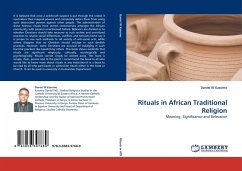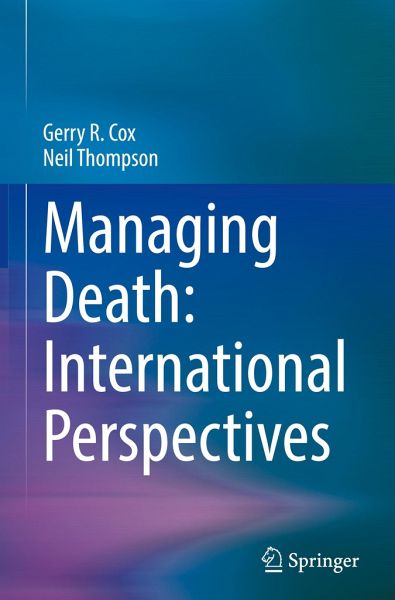
Managing Death: International Perspectives
Versandkostenfrei!
Versandfertig in 6-10 Tagen
38,99 €
inkl. MwSt.
Weitere Ausgaben:

PAYBACK Punkte
19 °P sammeln!
There is a huge collection of literature relating to death, grief and bereavement, but one aspect that has received relatively little attention is that of death management practices (by which we mean the various ways of managing the circumstances of the death, ritually acknowledging it and sensitively handling the disposal of the body and so on). While ways of disposing of the dead and grief practices have been thought of as based upon individual responses, grief and bereavement practices can be understood not only by looking at psychological and medical frameworks, but also by examining peopl...
There is a huge collection of literature relating to death, grief and bereavement, but one aspect that has received relatively little attention is that of death management practices (by which we mean the various ways of managing the circumstances of the death, ritually acknowledging it and sensitively handling the disposal of the body and so on). While ways of disposing of the dead and grief practices have been thought of as based upon individual responses, grief and bereavement practices can be understood not only by looking at psychological and medical frameworks, but also by examining people as part of a complex structure of social arrangements, institutions, structures, and patterns. By examining the social and institutional structures of various groups around the world, we provide an international framework for a better understanding of the study of dying, death, and bereavement.
This book highlights the significance of these matters in an international context, reflecting common themes and important differences. It will highlight common themes across diverse cultures and national settings, while also drawing attention to significant differences. If professionals working in the field of death, grief and bereavement are not aware of such differences, their practice can be insensitive, discriminatory and therefore ineffective, if not actually counterproductive.
As such, the book provides an invaluable resource for a wide variety of professionals and students, including medicine and health care; social work; counselling and psychotherapy; chaplaincy and pastoral work; and, of course, those involved in the funeral industry. In addition, students of sociology, psychology and anthropology will find much of interest here in terms of appreciating the diversity of ways in which funerals and other death management practices are managed and integrated into social life.
This book highlights the significance of these matters in an international context, reflecting common themes and important differences. It will highlight common themes across diverse cultures and national settings, while also drawing attention to significant differences. If professionals working in the field of death, grief and bereavement are not aware of such differences, their practice can be insensitive, discriminatory and therefore ineffective, if not actually counterproductive.
As such, the book provides an invaluable resource for a wide variety of professionals and students, including medicine and health care; social work; counselling and psychotherapy; chaplaincy and pastoral work; and, of course, those involved in the funeral industry. In addition, students of sociology, psychology and anthropology will find much of interest here in terms of appreciating the diversity of ways in which funerals and other death management practices are managed and integrated into social life.




